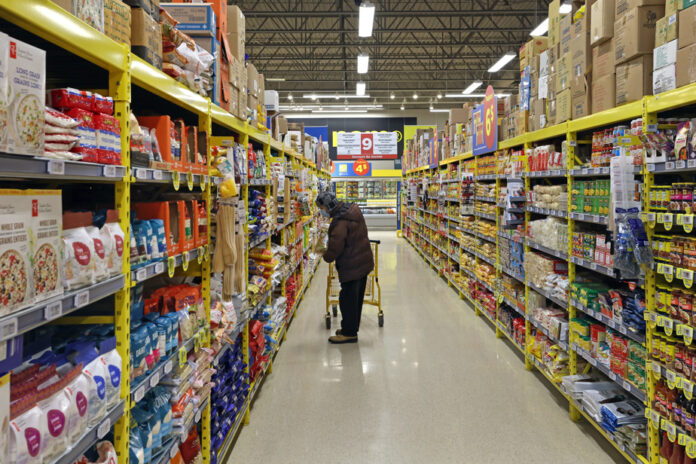(Ottawa) The federal Minister of Industry, François-Philippe Champagne, wants Canadian grocers to have more transparency with the population in their price stabilization projects.
Earlier in October, Minister Champagne announced that major Canadian grocery chains Loblaw, Metro, Walmart, Costco and Empire, which includes the IGA and Sobeys banners, had submitted initial plans to the federal government on how they would stabilize prices in the face of high inflation. The government summoned the heads of these companies to Ottawa last month, demanding that they present such a plan before Thanksgiving or tax measures would be taken.
During the October 5 announcement, François-Philippe Champagne said these plans included discounts, price freezes and price equalization campaigns. He didn’t release many details at the time, saying he wanted grocers to compete with each other.
But in an interview with The Canadian Press on Monday, the minister invited grocers to be more open. “They have explained to us the kinds of things they intend to do, but I think they may have been different in their approach with the population.”
The Canadian Press contacted grocers last week to ask for more details on their commitments to the federal government. Loblaw and Costco did not respond and Metro declined to comment. A Walmart spokeswoman said the company promised to continue offering “everyday low prices,” which refers to its strategy of offering low prices on a regular basis, rather than just on promotion.
Meanwhile, a spokeswoman for Sobeys, which is owned by Empire, responded Friday saying the company was not disclosing its plan for competitive reasons. “Our plans are competitively sensitive and we do not intend to discuss them before they are launched in our stores,” said Karen White-Boswell, director of external communications for Empire.
This contrasts with the similar situation that has occurred in Europe over the past year.
In the UK, grocery giant Asda announced plans in June to freeze prices on 500 products until the end of August. France’s government struck a three-month deal with supermarket chains earlier this year to cut prices on hundreds of staples and other foods.
Although François-Philippe Champagne has regularly cited these countries as examples to follow, he said that Canadian grocers are not used to government intervention and that calling them to a meeting in Ottawa was already a big step to take for the federal government. “We are shaking the tree,” he illustrated. “It’s not a regulated industry (like telecommunications) where they are used to working with government to get results. »
The decision to pressure grocers to tackle rising prices was part of a package of measures announced by Prime Minister Justin Trudeau at the end of a Liberal caucus meeting last month that aimed to address affordability and housing. “Over the summer, I think we all went out and listened to Canadians and it became very clear when we came together as a caucus that what we heard from Canadians was really about housing and affordability.” Mr. Champagne said.
Polls this summer found that support for the ruling Liberal Party (PLC) has fallen, largely to the benefit of the Conservative Party (CCP) which has for months focused on affordability issues.
The Liberals said getting grocers to stabilize prices was a way to take immediate action to address people’s financial concerns, but during the interview, Mr. Champagne acknowledged that the solution to high product prices food, in the long term, depended on the forces of competition. “Ultimately, three companies in Canada and three major grocers control over 60% of the market. And the best way to solve this problem and stabilize prices in the medium and long term is to create more competition,” in his opinion.
The Liberals also introduced a bill that would make several changes to competition law in Canada. Minister Champagne promised that the reform would be presented, but he did not specify when.















